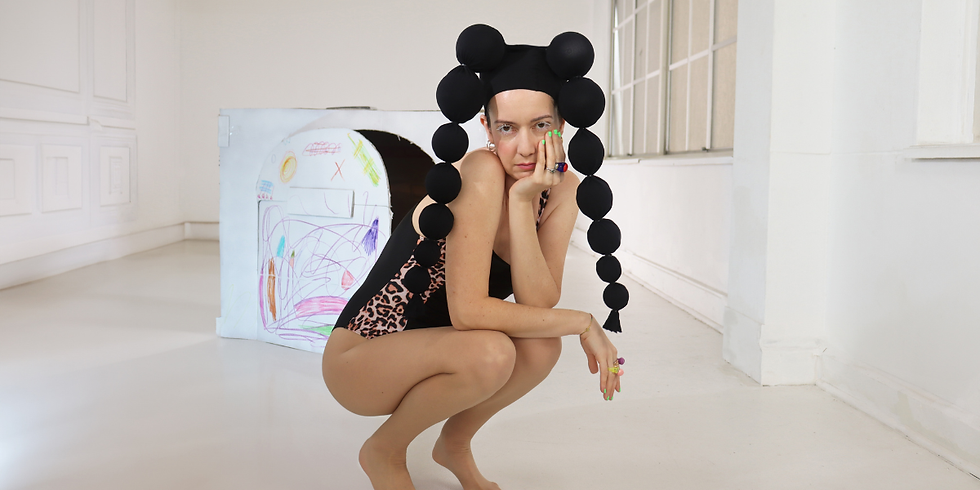The Lisbon Traviata - Garrick Theatre
- Kate O'Sullivan
- Apr 17, 2024
- 4 min read
Reviewed by Paul Treasure
On the 27th of March, 1958, a cast member at Lisbon’s Teatro Nacional de Sao Carlos snuck a tape recorder backstage and secretly recorded a performance of Verdi’s La Traviata featuring Maria Callas in the lead role. The rumoured existence of this bootleg recording was a thing of legend until it surfaced in the mid-1980s and a very small number of copies were printed. Subsequently, a major recording label took the effort to retrospectively gain the permission of all involved and release the recording commercially, but in 1989 “The Lisbon Traviata” as it was now known, was still only available to those few who had managed to snap up one of that limited run of discs. This tiny little footnote of operatic history provides not only the title but also the McGuffin for Garrick Theatre’s latest offering.
The play is very much a play of two halves. The first half is a hilariously witty and bitchy comedy as two self-obsessed opera queens riff on opera, opera singers and life in general. This act is set in a glorious boudoir comprised of red velvet drapes and somewhat ornate furnishings. Mendy, whose apartment this is, is flamboyant, self-obsessed and over-dramatic. This is a role that could very easily teeter over the edge into parody. In Martyn Churcher’s skilful hands, the role manages to stay just this side of the line. His portrayal of Mendy is, on the surface, annoying, insufferable and embarrassing. At the same time, he manages to convince us that this front is a defence mechanism for the pain and fear that Mendy feels at perhaps having lost any chance of romance and happiness. Considering the role was originally played by Nathan Lane when he was in his early thirties, Martyn’s version of Mendy is considerably older, which makes his portrayal even more poignant and pathetic. This is a big, bold, and brave portrayal that glories in its flamboyance, and Martyn is to be commended for pushing it right to the edge, without making it offensively stereotypical. Adam Poole, as Stephen, is set the unenviable challenge of weathering Hurricane Mendy in the first half. Stephen, who is the actual lead of the play, counters and matches the bitchiness of the first act with aplomb, But it is in the second act that we see what this portrayal really has in store for us.
The second act is set in Stephen’s apartment. The velvet drapes have been removed, and we see that underneath is a sleek and modern apartment, with a wall full of vinyl records, a masterful optical illusion by the set team. This sleek barrenness sets the mood for what is about to happen. Stephen is a mess. Jealous and angry, striking out at his long-term partner, Mike, and cruelly taunting Mike’s new flame, Paul. Rapidly spiralling out of control, we palpably feel every petty turn in his character, while at the same time are horribly aware of his fear that he is going to turn into another version of his pathetic friend, Mendy. Adam is totally believable in the role, mastering every twist and surprise his character arc throws at us.
Stephen’s long-suffering partner, Mike, is expertly played by Patrick Downes. Patrick gives us a very real sense that Mike is over it. He has been dealing with Stephen and his unnecessary drama for too long. We feel every pang of anger and frustration at Stephen’s incessant pettiness and jealousy, and his need to get out from the toxicity of his current relationship. We feel this most keenly when Mike finally snaps and attacks Stephen, and also in the horrifying final moments of the play. Alex Comstock, as Mike’s new boyfriend, Paul, makes an impression from his very first entrance. His naivete and vulnerability, against these other more experienced and broken men, are played with sweet effectiveness, especially his awkwardness and discomfort at Stephen’s cruel and ham-fisted attempt at seduction.
I was very pleased to see this play with its original gruesome ending, rather than its softened-down second ending. While the ending used in this version could be seen to be a little over the top and overly dramatic, the variant ending comes over as a bit of an anticlimax. This first ending seems the more suitable for a play about a man obsessed with opera. If I had any criticism about this production, it would be that some of the more physical parts of the action could have been more physical. It sometimes feels like the punches have been deliberately pulled (in one case literally). The moments of emotional danger were so raw and visceral, that it would have been even more impressive if the moments of physical danger could have reached the same level.
The play is a challenging one to carry off, dealing as it does with real-life gay characters with all their faults and flaws. This is very much a play about gay men, by gay men, and is unashamed in its portrayal and discussion of some behaviours that are common in the gay community, but maybe not in the wider community. With a lesser hand, these characters could easily descend into stereotype and parody, but director Barry Park has allowed the actors to explore their characters to the very edge of believability but managed to keep them just this side of the line. This may not be a play for everyone, especially not those who like to wear their pearls to the theatre (so they have something to clutch), but for everyone else, this is a production worthy of the play and its reputation, and well worth seeing.

Reviewer Note: Tickets for this review were provided by the theatre company.






Comments